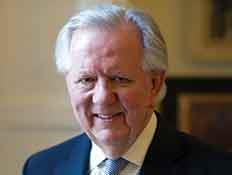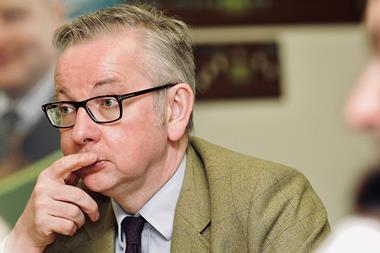“We hope he wins. That would be the best scenario”. So said the Socialist Party, formerly the Militant Tendency, of Jeremy Corbyn, who by now is looking a genuinely credible candidate for the Labour leadership.

He has 162 nominations compared with Yvette Cooper’s 121, Andy Burnham’s 118 and Liz Kendall’s 21. These are dark days for Labour.
Those of us who remember the party in the 80s will recognise the symptoms — a lurch to the hard left, which, while it might please a few zealots, puts the party beyond the reach of most voters. Those Labour MPs who nominated Corbyn “to widen the debate” have been described by their own fellow party members as morons.
The man who turned Labour into a formidable winning machine was, of course, Tony Blair, ably assisted by Peter Mandelson and Gordon Brown. John Prescott owed his long stint as deputy prime minister entirely to his clarion call to doubters in the party. Leave him alone, he cried. If it weren’t for Tony we wouldn’t be in government. Labour had never before managed to serve two whole terms. Blair won three and arguably could have won a fourth. There are many who say that after 18 years of Tory government the late John Smith would have won comfortably had he survived, and I suspect they are right.
But Blair’s game plan was clear. Move Labour away from the left and into the centre ground. Forget opposition to nuclear weapons, abandon Clause 4, with its communistic overtones, cosy up to business and industry and target the middle class. The party was obsessed with Mondeo Man and Worcester Woman. Spin dominated every announcement, as Alastair Campbell’s influence ensured every government department’s communications head was chosen and vetted for willingness to comply. And for a long time it worked. Many of us recall with some mild affection a top tax rate of 40% and 10% on capital gains. To top all this, the party spent like a drunken sailor.
In the end, what did for Blair was his disastrous Iraq venture, the consequences of which we still live with today, and the growing realisation among Labour supporters that Blair was, in fact, a Tory. The party realised that being in government is not an end in itself. The supreme irony of Brown’s victory over his old comrade was that it was Brown who was the real architect of Blairism.
Blairism is now “a virus” inside Labour, according to Dave Ward, general secretary of the Communication Workers Union. This view is clearly shared by others on the left of a party that is descending into bitter factional in-fighting. Accusations and insults are being thrown around while the Tories simply watch and laugh. We now know that if Corbyn is elected, many of the party’s leading lights have said they will not serve under him. He has promised that shadow cabinet posts will be elected, but it is doubtful he could field a full team.
But a word of caution to those who think Labour is finished. All this is great sport, but it may just be midsummer madness. The bigger the possibility of a Corbyn win, the more likely it is that ordinary Labour supporters will vote for other candidates. Liz Kendall will surely drop out and throw her support behind Burnham or Cooper. Every second preference will be for someone other than Corbyn. If he does win he will almost certainly be challenged, not immediately, but within a year, by which time the party might well be on 15% in the polls. And this is a five-year race. You can be well behind for a long time and still come through on the rails.
When Labour lost in 1992 there were those arguing that if they couldn’t beat the Tories after 13 years the party was doomed. Five years later it was the Tories who were out of power for a generation.
Steve Norris is a former Conservative minister and London mayoral candidate. He is chairman of Soho Estates and the National Planning and Infrastructure Association






























No comments yet